11 Gut-Healing Foods That Nutritionists Swear By
In recent years, gut health has emerged as one of the most important foundations for overall wellness. Often referred to as the "second brain," your gut influences far more than just digestion—it plays a critical role in everything from nutrient absorption and immune response to mood, mental clarity, and even chronic disease prevention. As research deepens our understanding of the gut microbiome, nutritionists are turning their attention to one powerful, accessible solution: food. This article spotlights 11 foods nutritionists consistently recommend for gut healing. These ingredients don’t require exotic grocery runs or trendy supplements—they're simple, science-backed staples that nourish your microbiome and help your digestive system function at its best. Combined with the right lifestyle choices, they can repair gut damage, rebalance bacteria, reduce inflammation, and transform your overall health from the inside out. Let’s explore the trusted foods that can help restore and heal your gut—one delicious bite at a time.
1. Yogurt
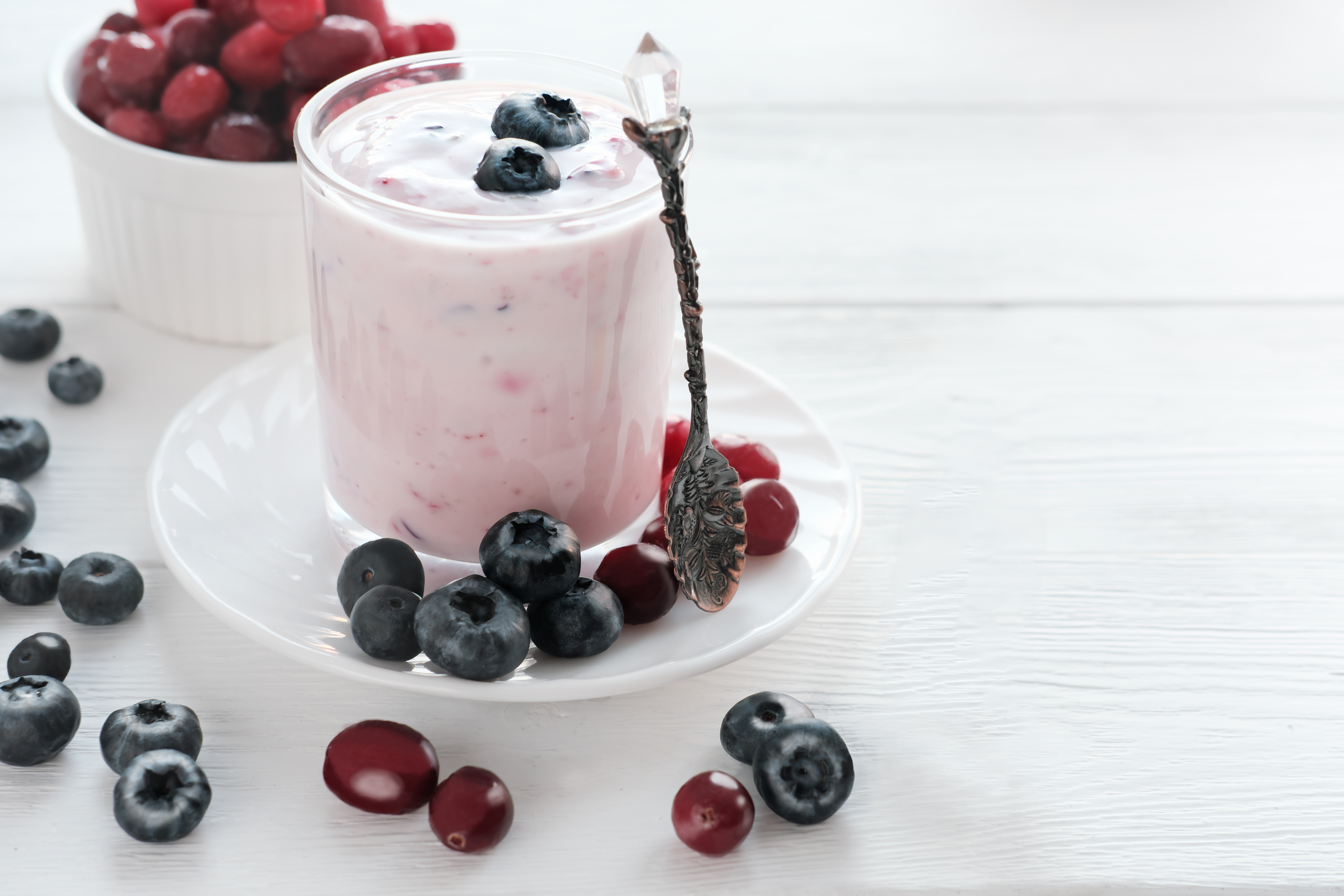
Yogurt is one of the most accessible and widely recommended sources of probiotics—those friendly bacteria that keep your digestive system humming. Made by fermenting milk with live bacterial cultures, yogurt supports a healthy gut microbiome by introducing beneficial strains like Lactobacillus and Bifidobacterium, which help crowd out harmful microbes and maintain microbial balance. These probiotics can aid in digestion, reduce bloating, and even enhance your immune system by strengthening the gut lining where many immune responses begin. For maximum benefit, choose plain, unsweetened yogurt with labels that say “live and active cultures.” Flavored yogurts are often loaded with sugar, which can feed bad bacteria and counteract the probiotic benefits. For a gut-loving twist, top your yogurt with fiber-rich berries and a sprinkle of chia seeds, or blend it into a smoothie with spinach and banana for a nutritious, digestion-friendly snack or breakfast.
2. Kefir
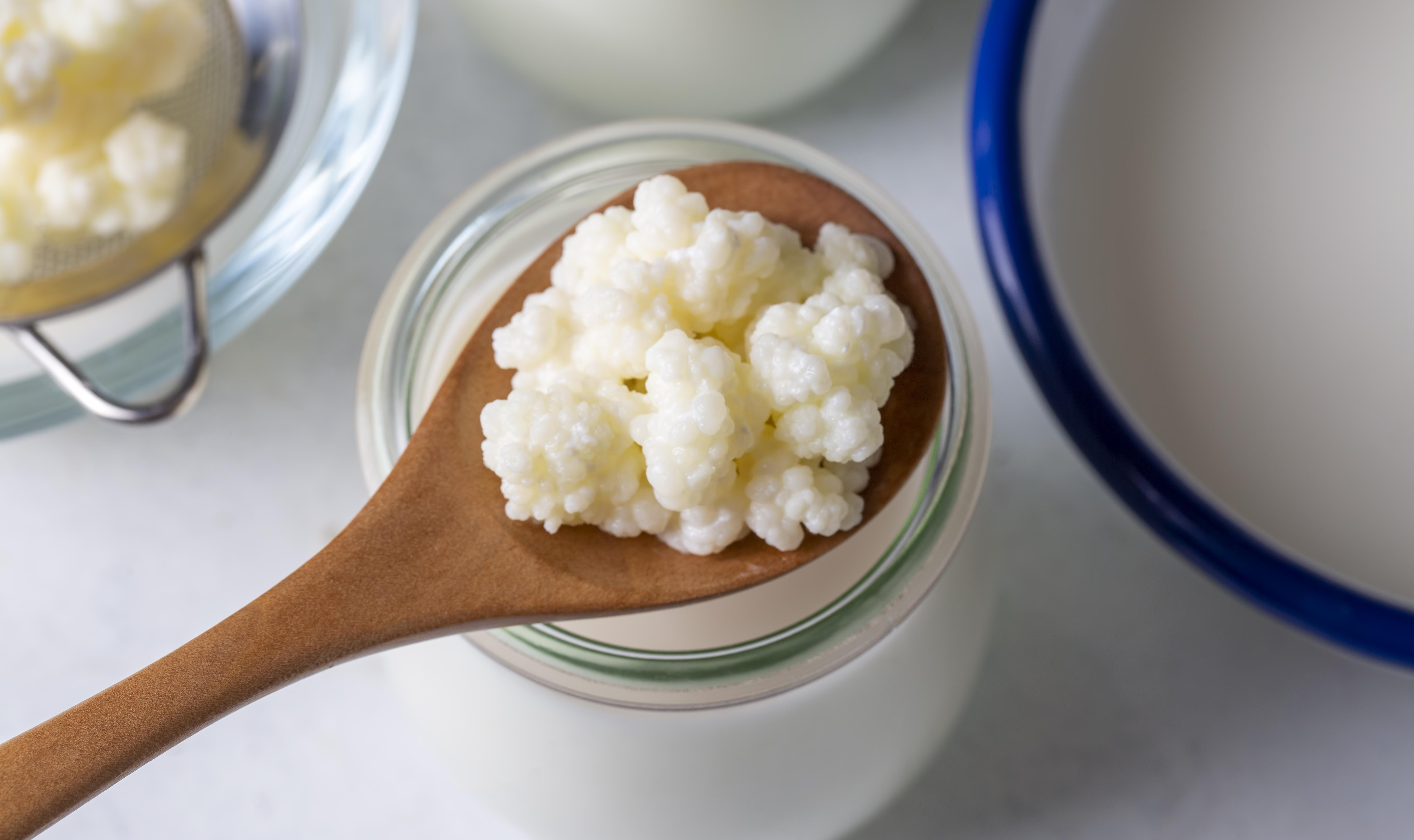
Kefir is a fermented dairy drink that takes probiotic power to the next level. With a thinner consistency than yogurt and a tart, tangy taste, kefir boasts a broader and more diverse range of probiotic strains—often up to 30 different types. These beneficial microbes can colonize your gut more effectively than many standard supplements, enhancing microbial diversity and improving resilience against digestive disturbances like antibiotic-related imbalances. Kefir also contains enzymes that break down lactose, making it easier to digest for people who are lactose-sensitive. Its versatility is a major plus: drink it on its own, pour it over granola or cereal, or use it as a base for smoothies and salad dressings. For those avoiding dairy, coconut and almond milk kefirs are also available and offer similar benefits. Regularly drinking kefir can help calm an irritated digestive tract, support regularity, and reinforce your immune defenses.
3. Sauerkraut
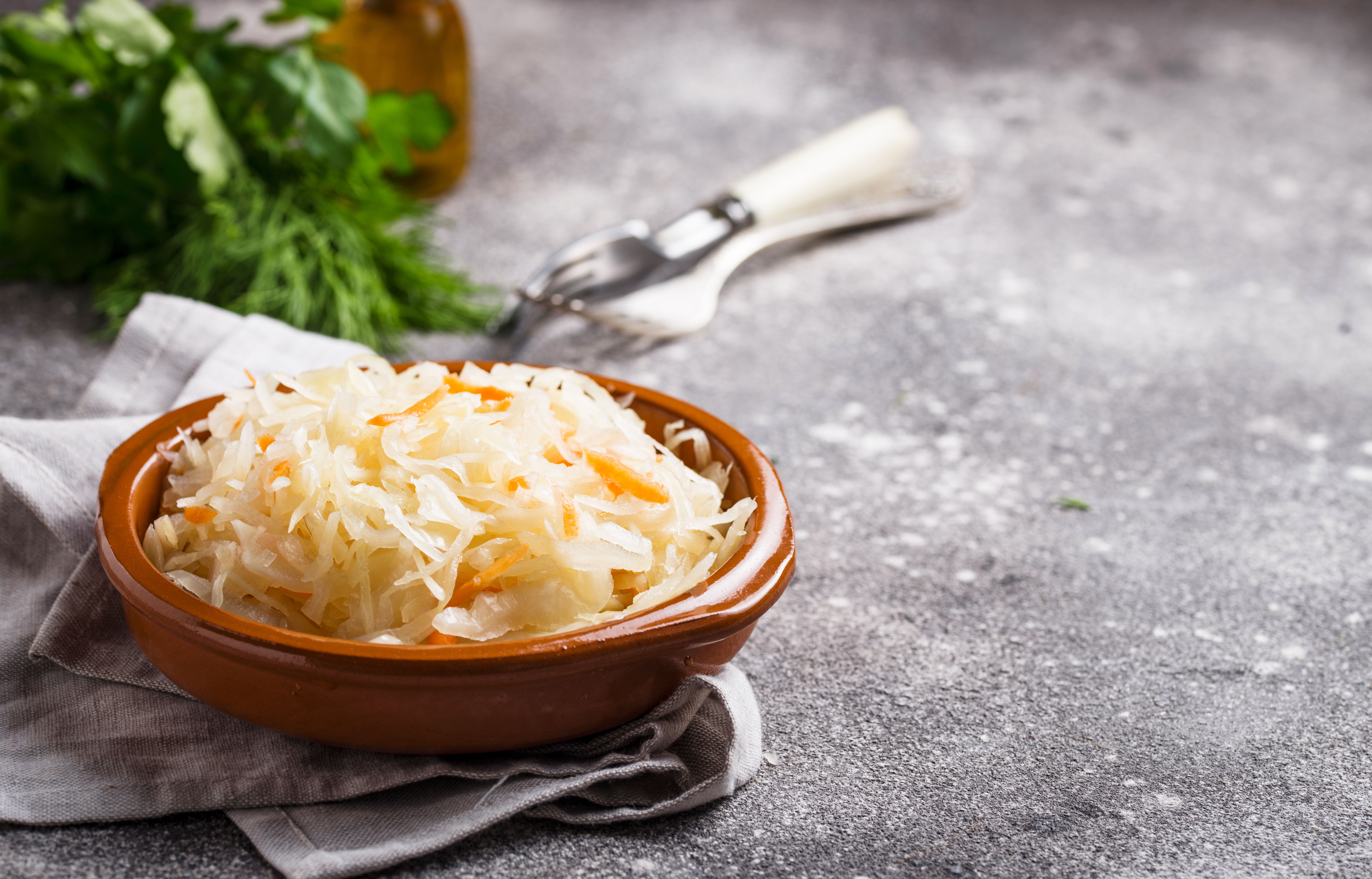
Sauerkraut, or fermented cabbage, is a traditional food with potent gut-healing properties. The fermentation process not only preserves the cabbage but also transforms it into a probiotic-rich powerhouse that supports digestion, nutrient absorption, and immune function. Sauerkraut is also high in fiber, which acts as a prebiotic—feeding the beneficial bacteria already in your gut. This dynamic combination helps improve regularity, soothe inflammation, and promote the growth of microbial diversity. The key is to opt for raw, unpasteurized sauerkraut, which contains live cultures. Shelf-stable, pasteurized versions are often heated during processing, destroying these beneficial bacteria. Look for it in the refrigerated section of natural food stores or farmers markets. Eat it as a tangy side dish, add it to sandwiches, or mix it into a salad for a crunchy, probiotic-rich boost. Just a few forkfuls a day can go a long way toward improving your gut health.
4. Kimchi
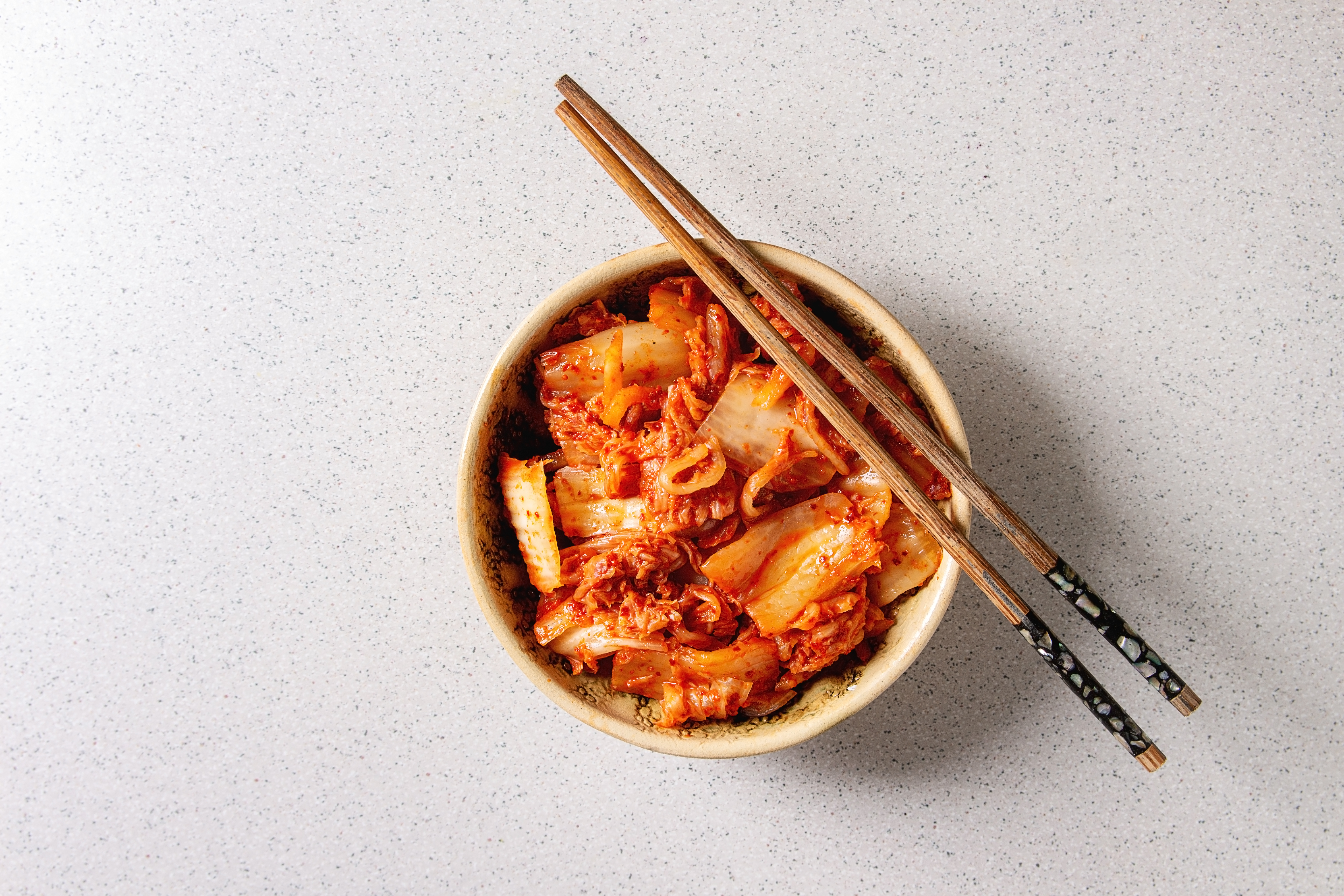
Kimchi, a fiery Korean condiment made from fermented vegetables like napa cabbage and radishes, is not just delicious—it’s a gut-health all-star. Like sauerkraut, it’s fermented, meaning it’s full of live, probiotic cultures that support your microbiome. But kimchi goes a step further, delivering antioxidants, vitamins (like A, C, and K), and anti-inflammatory compounds from garlic, ginger, and chili peppers. This unique blend supports microbial diversity, soothes gut inflammation, and helps your body fight off harmful bacteria. Studies have even shown that regular consumption of kimchi can improve digestion and reduce symptoms of gastrointestinal distress. Its spicy, bold flavor makes it a fantastic addition to many dishes—serve it with eggs, mix it into grain bowls, or enjoy it as a savory side to grilled meats or vegetables. A few tablespoons of kimchi a day is all it takes to give your gut the healing boost it craves.
5. Miso
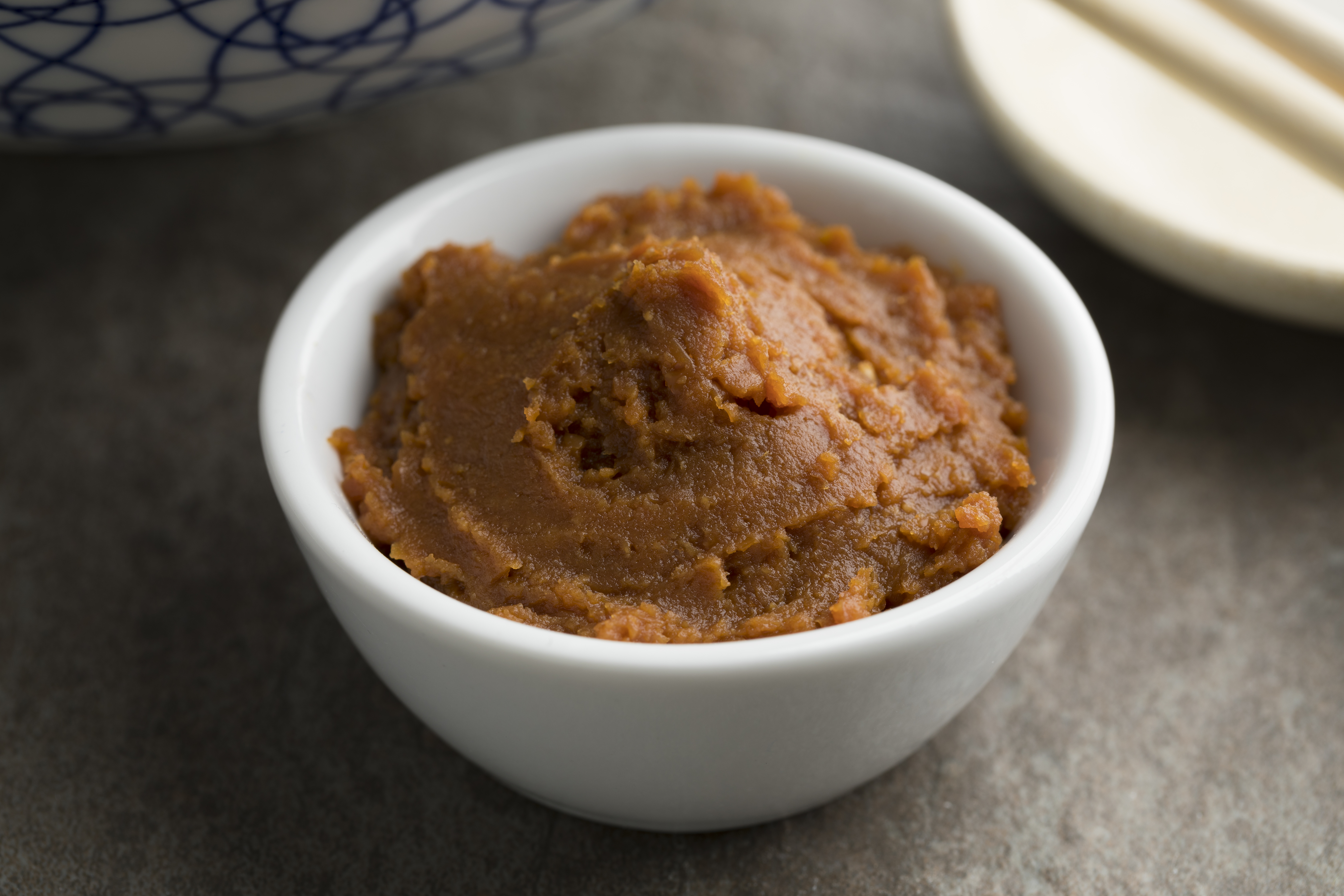
Miso is a traditional Japanese seasoning made by fermenting soybeans with salt and a type of fungus called koji. The result is a thick, salty paste packed with probiotics, enzymes, and nutrients that support digestion and gut healing. Miso is especially rich in beneficial bacteria like Lactobacillus acidophilus, which can enhance the gut microbiome and improve immunity. It also provides essential amino acids and trace minerals like zinc and manganese. Miso is commonly used in soup but is incredibly versatile—you can stir it into broths, marinades, glazes, salad dressings, and sauces. However, to preserve its live cultures, avoid boiling miso directly; instead, add it to warm (not hot) liquids after cooking. For those avoiding soy, chickpea and brown rice-based miso varieties offer similar benefits. Incorporating miso into your routine not only adds depth and umami to your meals—it’s also a flavorful step toward a healthier, more balanced gut.
6. Garlic
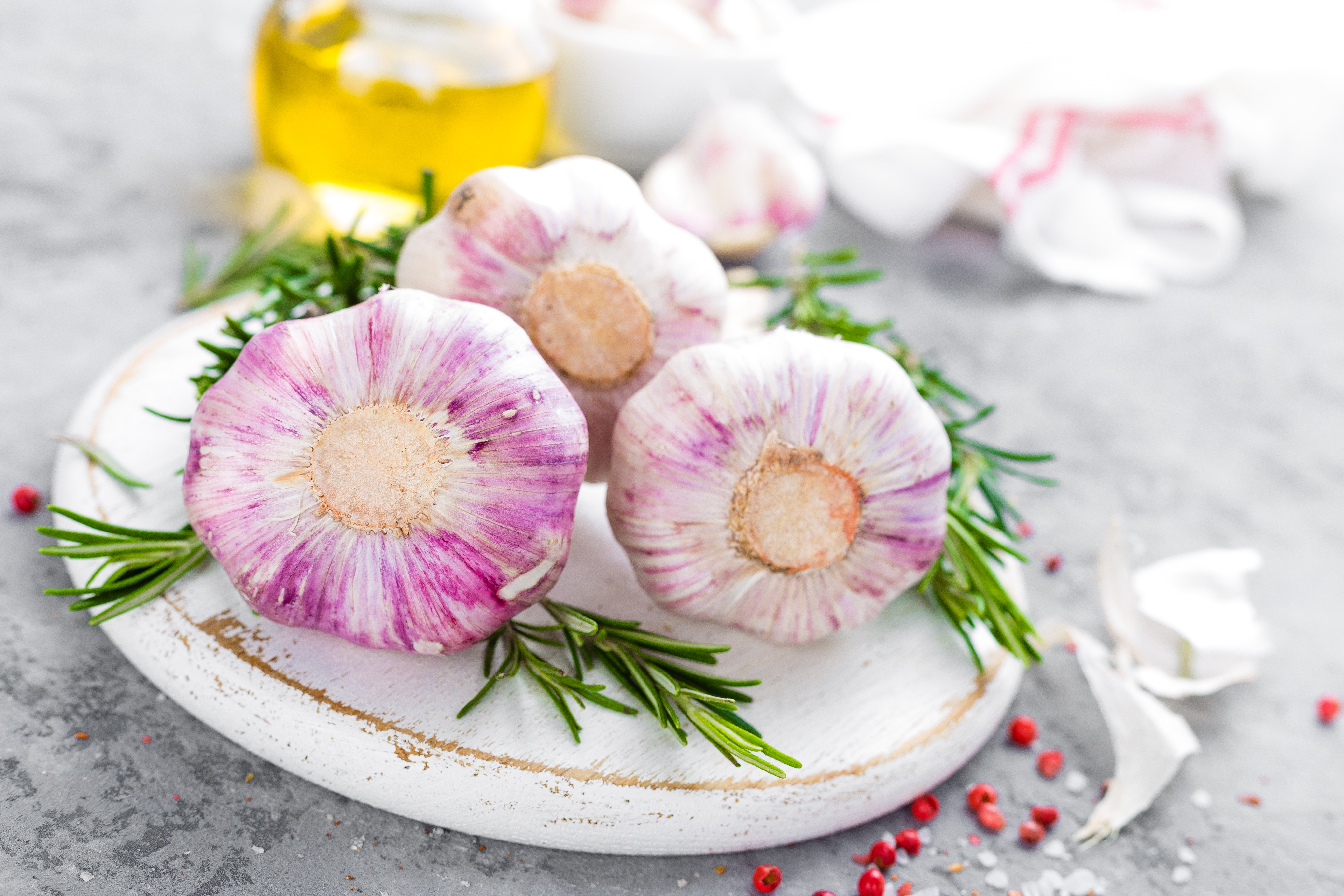
Garlic is much more than a flavorful kitchen staple—it’s also a potent prebiotic that helps nourish the good bacteria already living in your gut. Its high content of inulin and fructooligosaccharides (FOS) makes it a top-tier food for feeding beneficial microbes like Bifidobacteria. These compounds help improve digestion, regulate bowel movements, and strengthen the gut lining. Garlic also has natural antimicrobial and antifungal properties, which help control the overgrowth of harmful bacteria or yeast (like Candida) without harming beneficial strains. This dual action makes it especially helpful in restoring gut balance after antibiotic use or digestive infections. You can add garlic to almost any savory dish—soups, stews, stir-fries, and sauces. For the strongest health benefits, use raw or lightly cooked garlic, as heat can diminish its active compounds. Crushed and left to sit for 10 minutes before cooking, garlic releases more allicin, its most potent anti-inflammatory and antimicrobial compound.
7. Onions
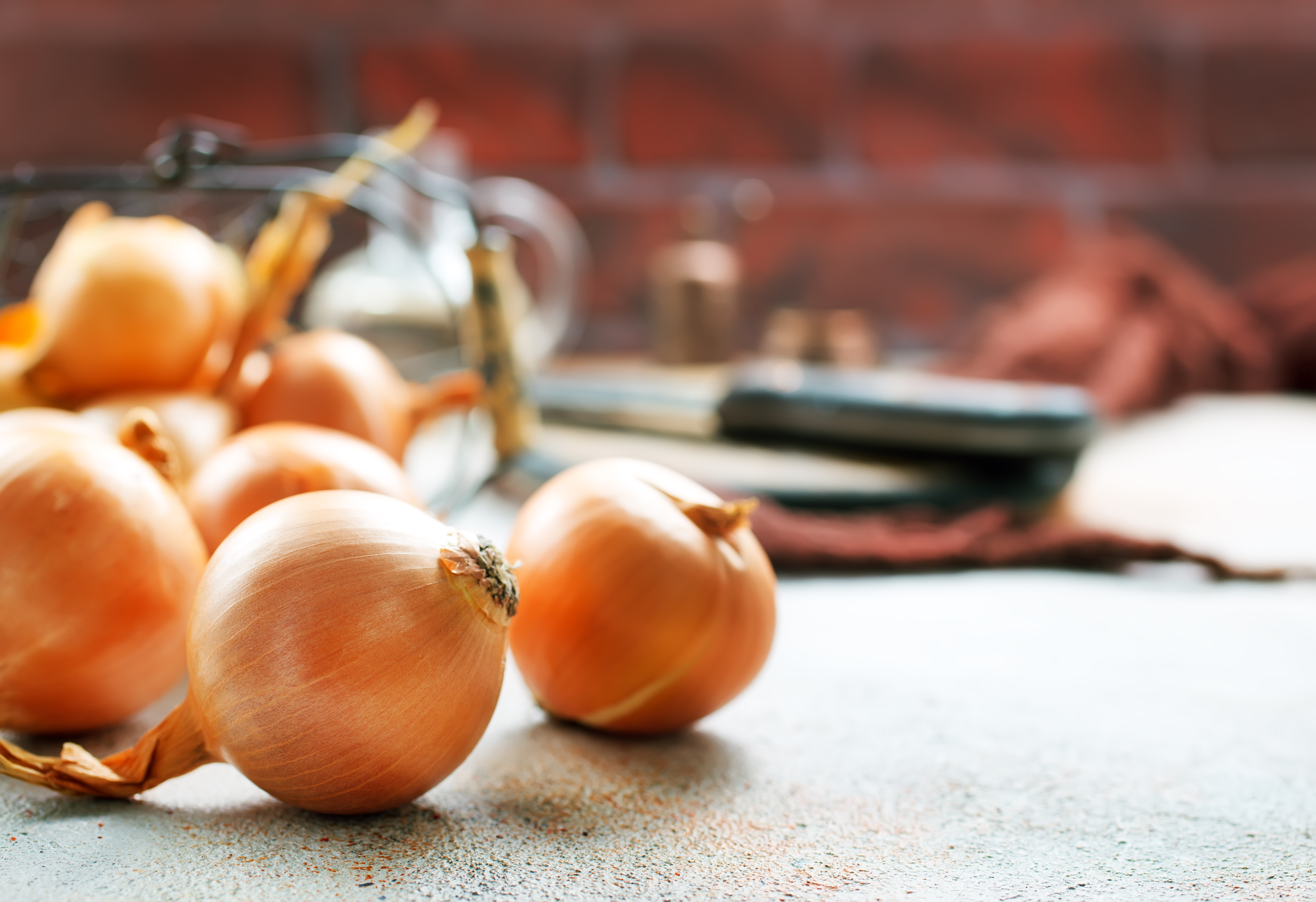
Onions, often the base of countless recipes, do far more than just add flavor—they're also a powerhouse for gut health. Like garlic, onions are rich in inulin, a type of prebiotic fiber that feeds the good bacteria in your gut, helping to increase microbial diversity and promote a healthy digestive ecosystem. A well-fed microbiome can better regulate inflammation, support immune function, and aid in nutrient absorption. Onions are also a source of quercetin, a potent antioxidant that may reduce oxidative stress and inflammation throughout the digestive tract. Whether raw, caramelized, sautéed, or roasted, onions are incredibly versatile and easy to incorporate into meals—from soups and stews to salads, sandwiches, and stir-fries. Red onions in particular offer an extra antioxidant boost due to their high anthocyanin content. For those with sensitive stomachs, cooked onions tend to be easier to digest than raw. Regularly including onions in your diet is a simple and effective way to nourish your gut and elevate the overall health benefits of your meals.
8. Asparagus
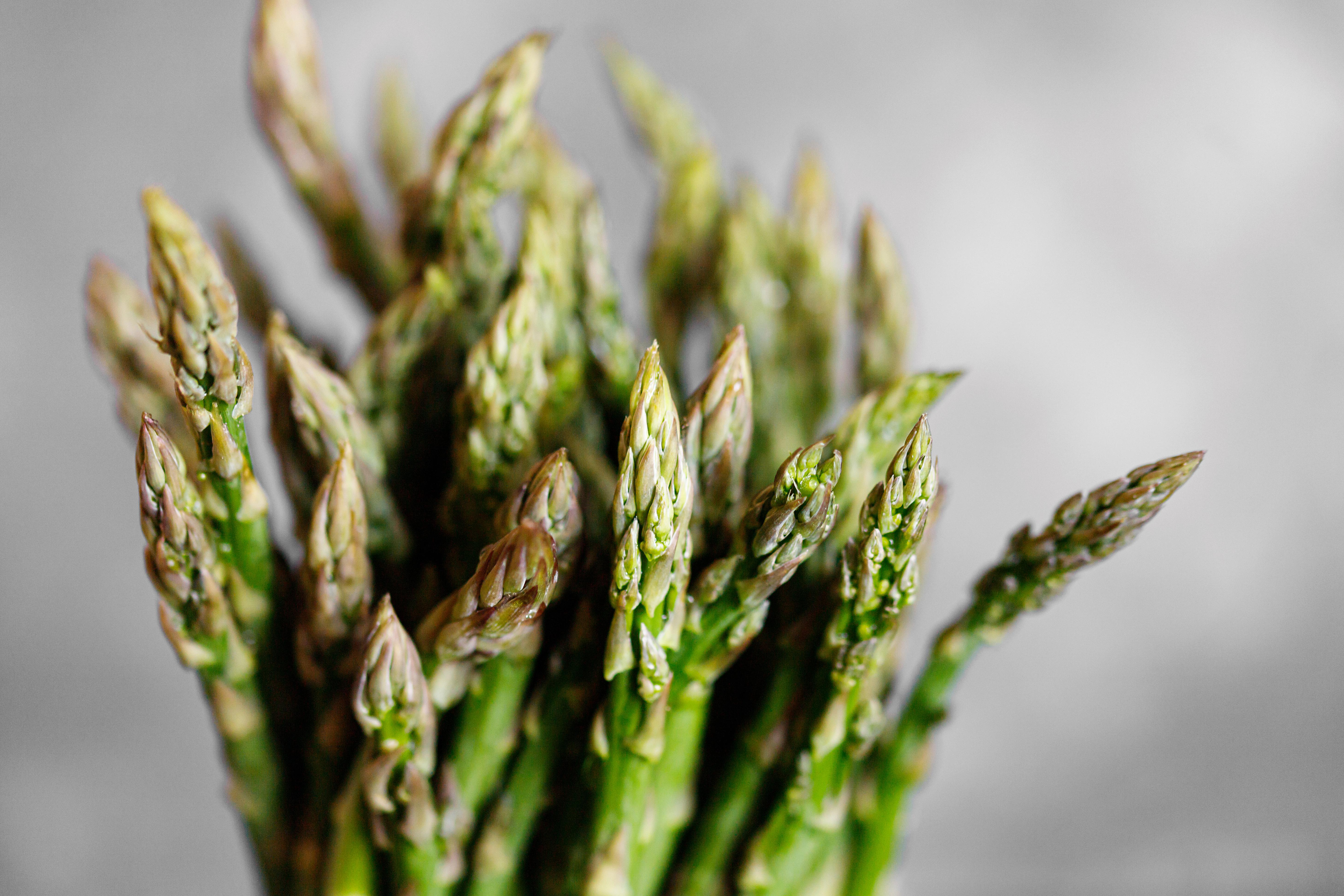
Asparagus is a gut-healing superfood that brings both prebiotic fiber and a cocktail of essential nutrients to the table. Its standout prebiotic, inulin, serves as fuel for healthy gut bacteria, encouraging microbial diversity and improved digestion. Additionally, asparagus is packed with antioxidants, including glutathione, which helps combat inflammation and oxidative stress in the gut lining. It’s also a fantastic source of folate, a B vitamin essential for DNA repair and cellular regeneration—key processes in maintaining a healthy intestinal barrier. Asparagus contains both soluble and insoluble fiber, making it effective at supporting regularity while promoting long-term gut health. This vibrant green veggie is also a natural diuretic, helping reduce water retention and supporting detoxification pathways. Whether roasted until crispy, grilled to perfection, steamed with lemon, or shaved raw into salads, asparagus is as versatile as it is beneficial. Including it regularly in your diet can help fortify your gut, soothe inflammation, and add flavor and texture to any meal.
9. Bananas
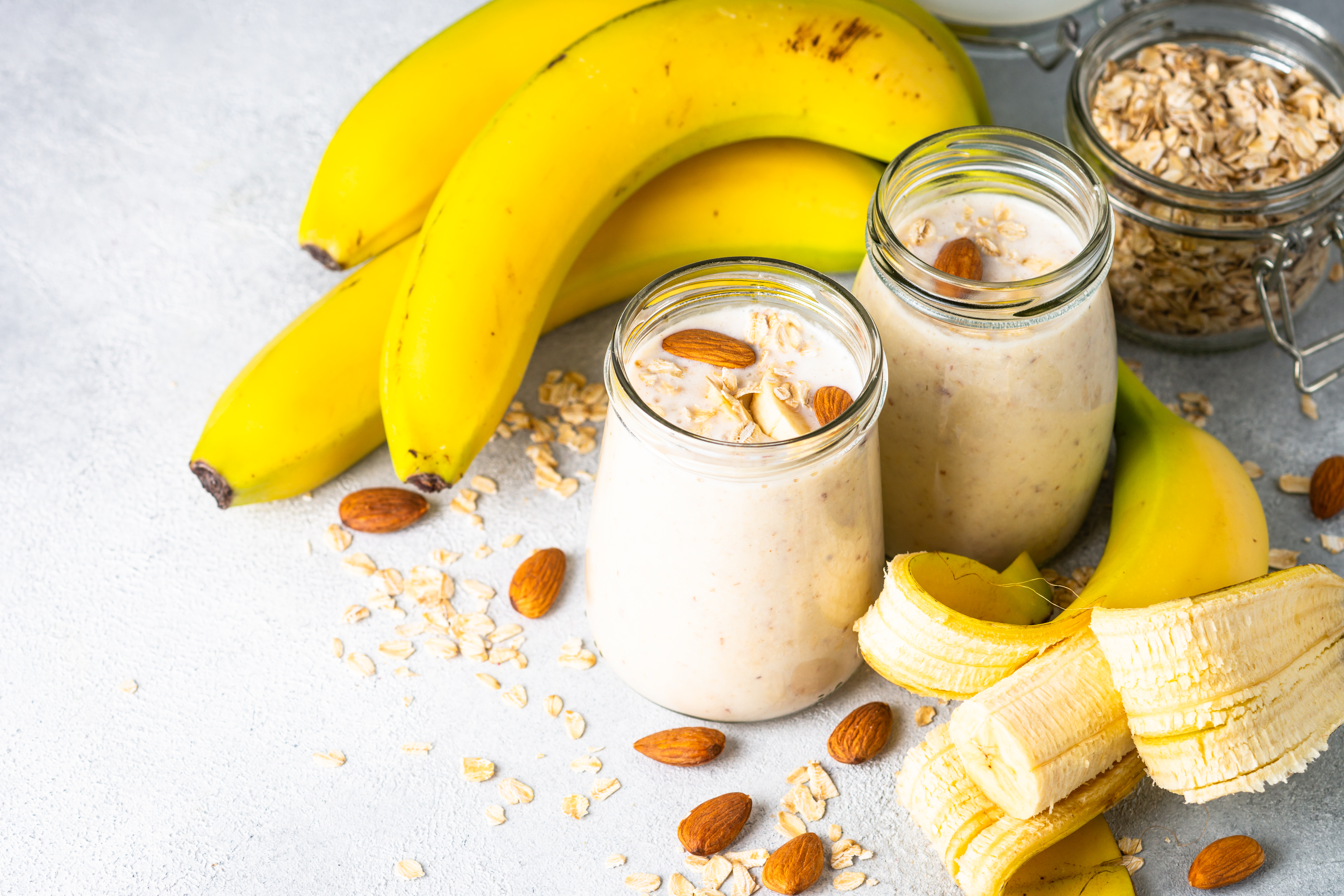
Bananas are a soothing, easily digestible fruit that offers a wide range of gut health benefits, especially when they’re slightly underripe. At this stage, they’re rich in resistant starch—a type of prebiotic fiber that bypasses digestion in the small intestine and ferments in the colon, where it nourishes beneficial gut bacteria. This fermentation process produces short-chain fatty acids like butyrate, which help maintain the integrity of the gut lining and reduce inflammation. Bananas are also high in pectin, another form of soluble fiber that helps bulk up stool and supports smooth digestion. Beyond fiber, bananas contain potassium and magnesium—electrolytes that help regulate nerve function and muscle contractions, including those of the digestive tract. Their naturally sweet, mild flavor makes them ideal for those recovering from gastrointestinal issues like ulcers, bloating, or IBS. Enjoy them as a quick snack, blend into smoothies, slice over oatmeal, or mash into baked goods. With their nutritional richness and gut-calming qualities, bananas are a true ally in digestive wellness.
10. Oats
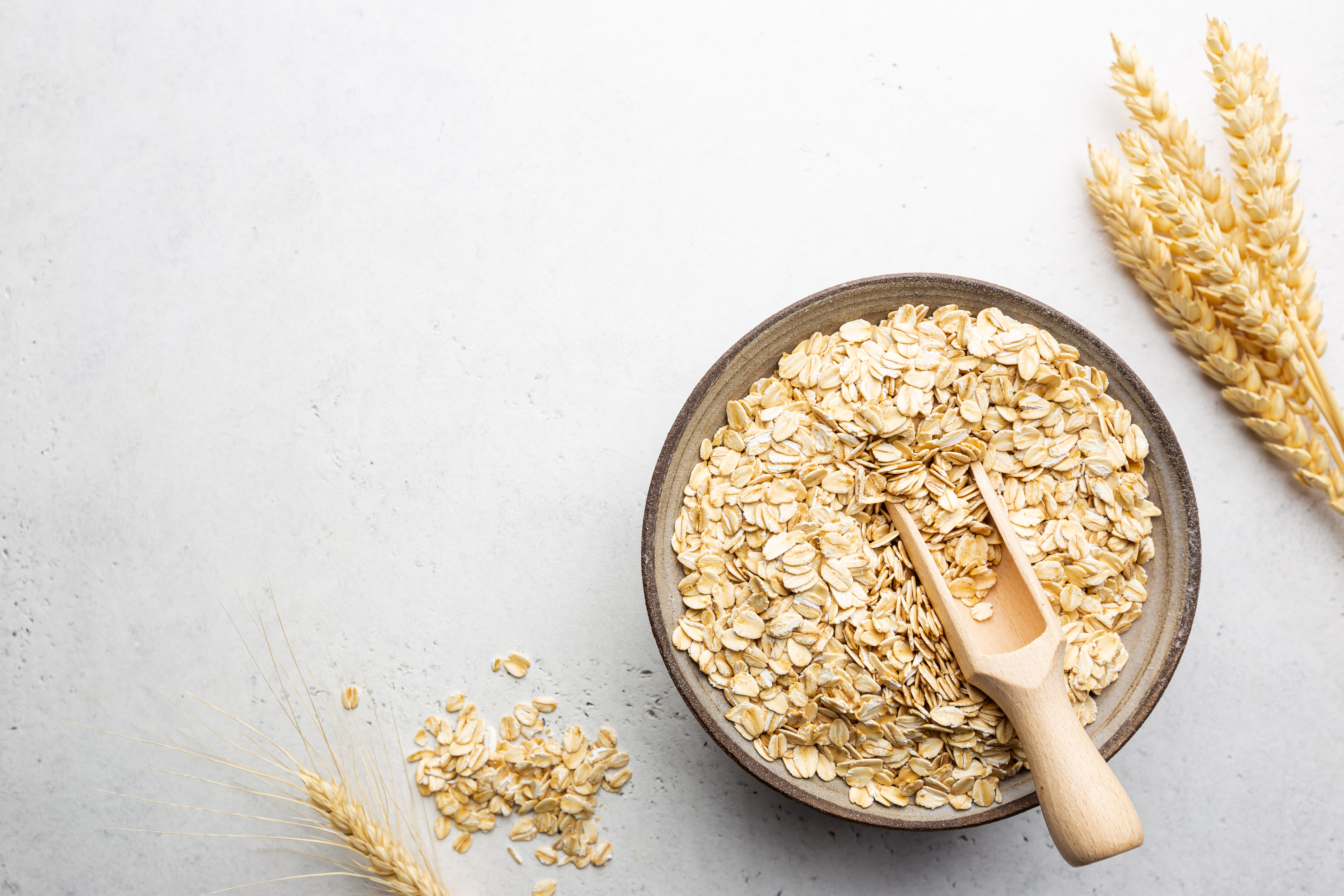
Oats are a fiber-rich staple that supports gut health on multiple levels, making them an ideal breakfast or snack choice for digestive balance. They’re especially high in beta-glucan, a type of soluble fiber known for forming a gel-like consistency in the digestive tract. This slows digestion, stabilizes blood sugar, and promotes the growth of healthy gut bacteria. Oats are also a source of resistant starch, which functions as a prebiotic by feeding your microbiome and encouraging the production of short-chain fatty acids that lower inflammation. Additionally, oats are naturally gluten-free (though often processed in shared facilities, so look for certified gluten-free if needed), making them accessible for many with sensitive digestion. The gentle texture of cooked oats makes them a soothing option for those recovering from gut inflammation or illness. To elevate their gut-healing power, top your bowl with probiotics like yogurt or kefir, fiber-rich berries, flax or chia seeds, and a drizzle of honey. This simple, nourishing combo offers long-lasting energy and a daily boost for your microbiome.
11. Bone Broth
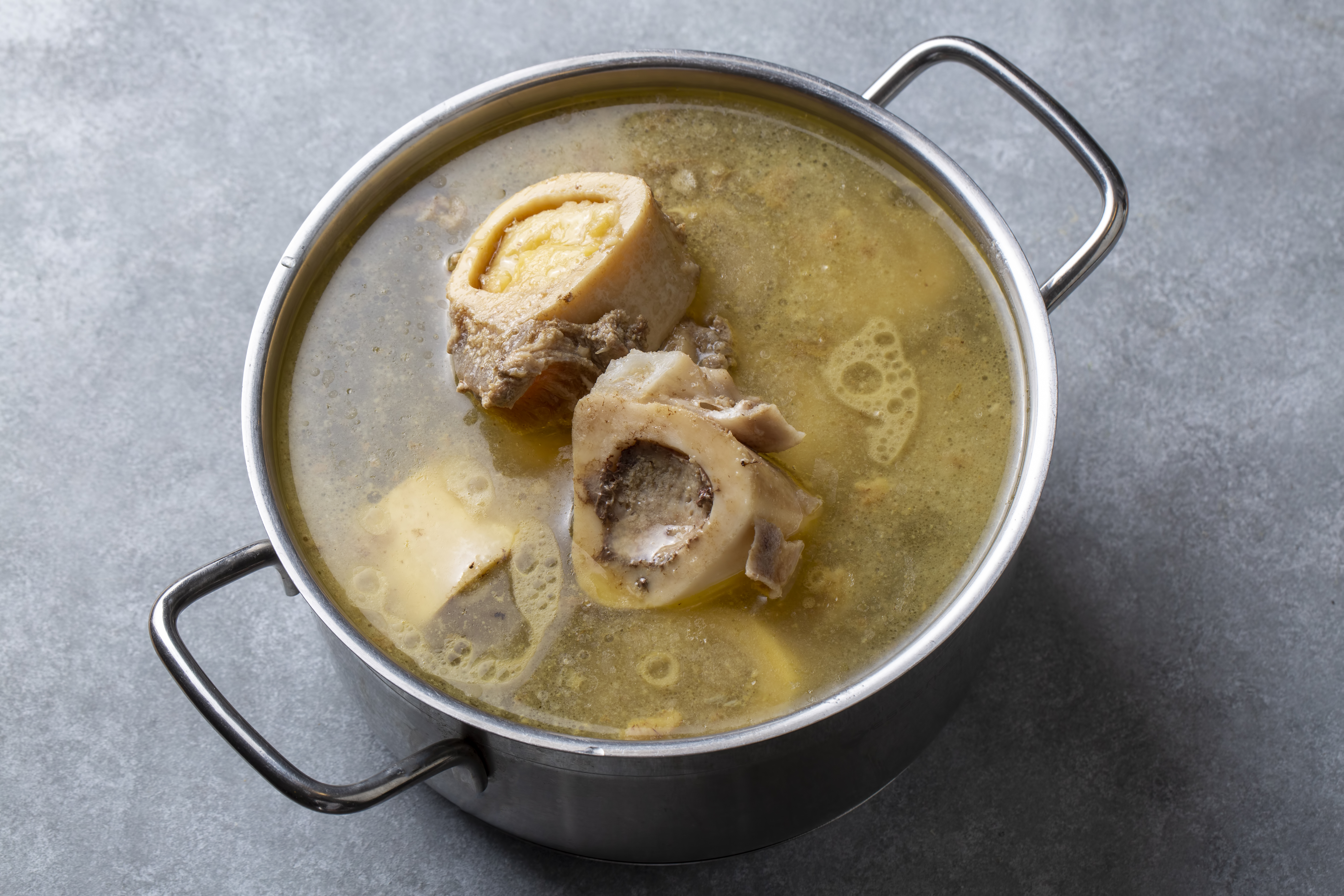
Bone broth is a time-honored gut-healing tonic that’s been used for centuries in traditional medicine, and modern nutrition science backs its benefits. Made by simmering animal bones, cartilage, and connective tissue for hours, bone broth is packed with collagen, gelatin, and amino acids like glutamine, glycine, and proline—all of which are crucial for maintaining and repairing the intestinal lining. These compounds help "seal and heal" the gut, making bone broth especially beneficial for those with leaky gut syndrome, IBS, or chronic inflammation. The gelatin content also aids digestion by attracting and holding liquids, supporting smooth movement through the digestive tract. Bone broth is additionally rich in minerals like magnesium, calcium, and phosphorus, which are critical for enzymatic functions and nutrient absorption. Warm and comforting, bone broth can be sipped solo like a tea or used as a base for soups, stews, sauces, or even cooking grains like rice and quinoa. Including a few servings of bone broth each week can be a game-changer for your digestive and overall health.
Healing from the Inside Out
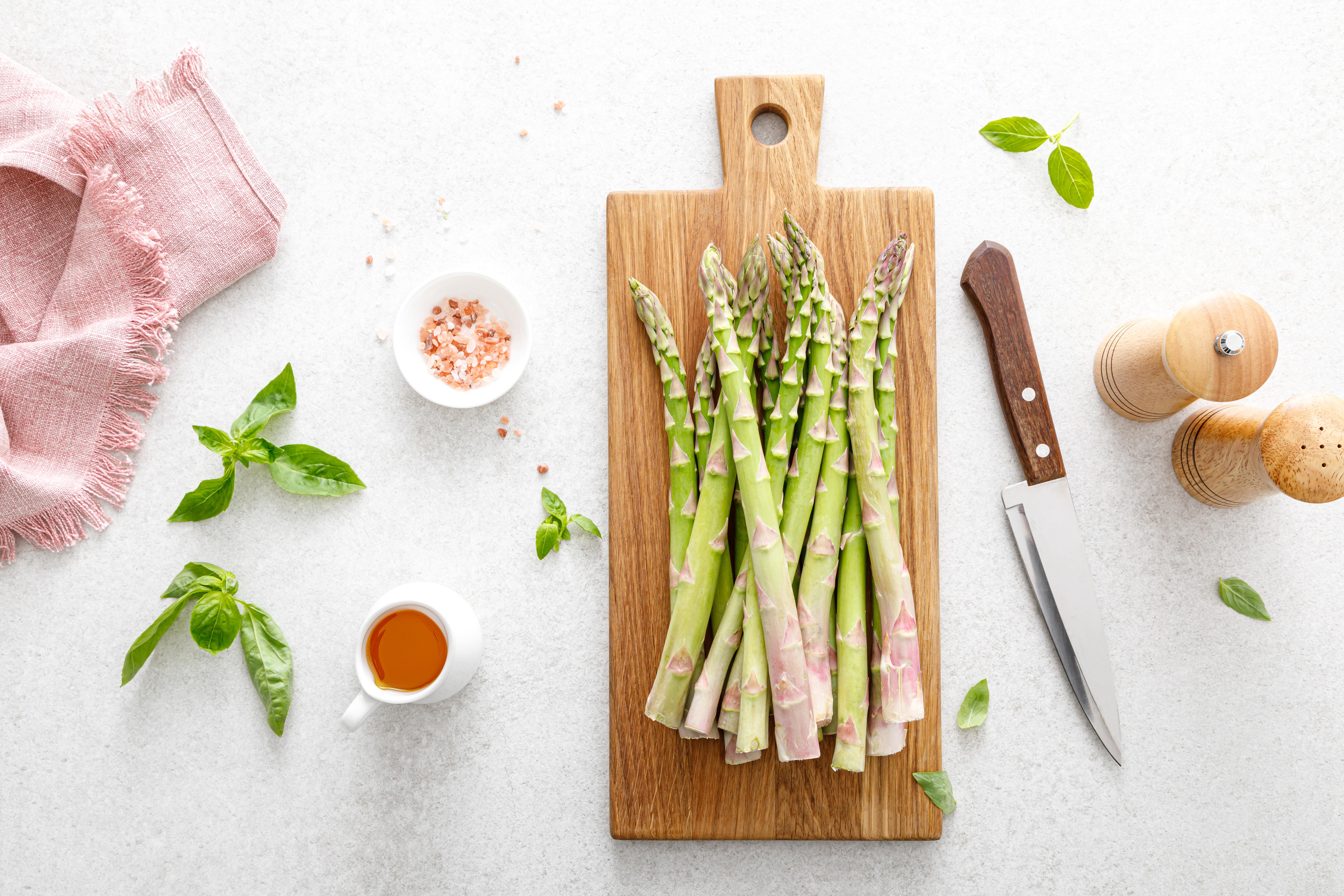
Gut health is more than just a wellness trend—it's a core pillar of how our bodies function, heal, and thrive. By focusing on whole, nutrient-rich foods like these 11 gut-healing favorites, you can support your microbiome, ease inflammation, and unlock greater energy, mental clarity, and immune resilience. Best of all, these foods are accessible, delicious, and easy to integrate into your daily meals. Whether you're recovering from digestive issues or simply aiming to optimize your health, nourishing your gut is one of the most powerful steps you can take. Let food be your first line of defense, your daily medicine, and your partner in long-term wellness.